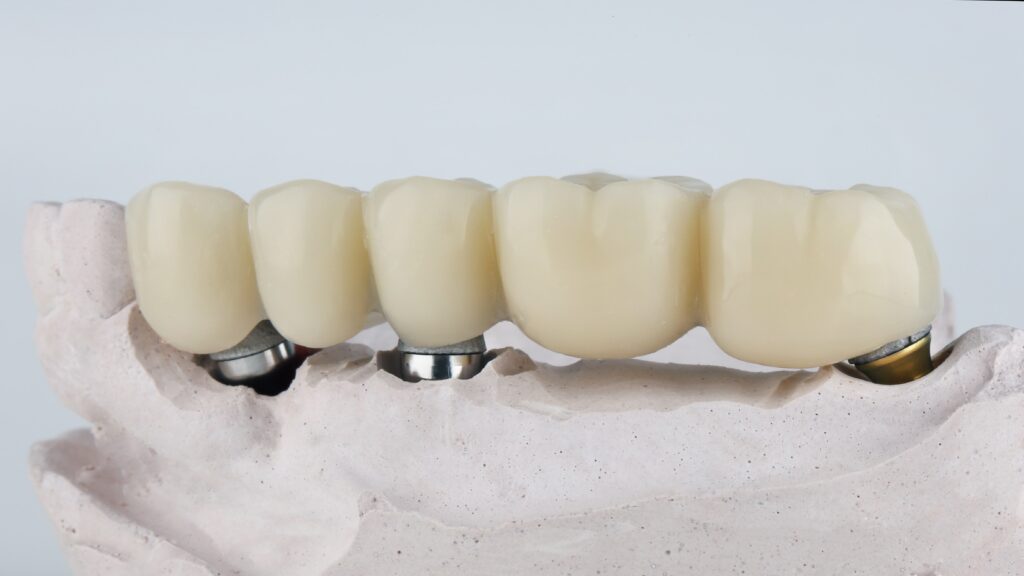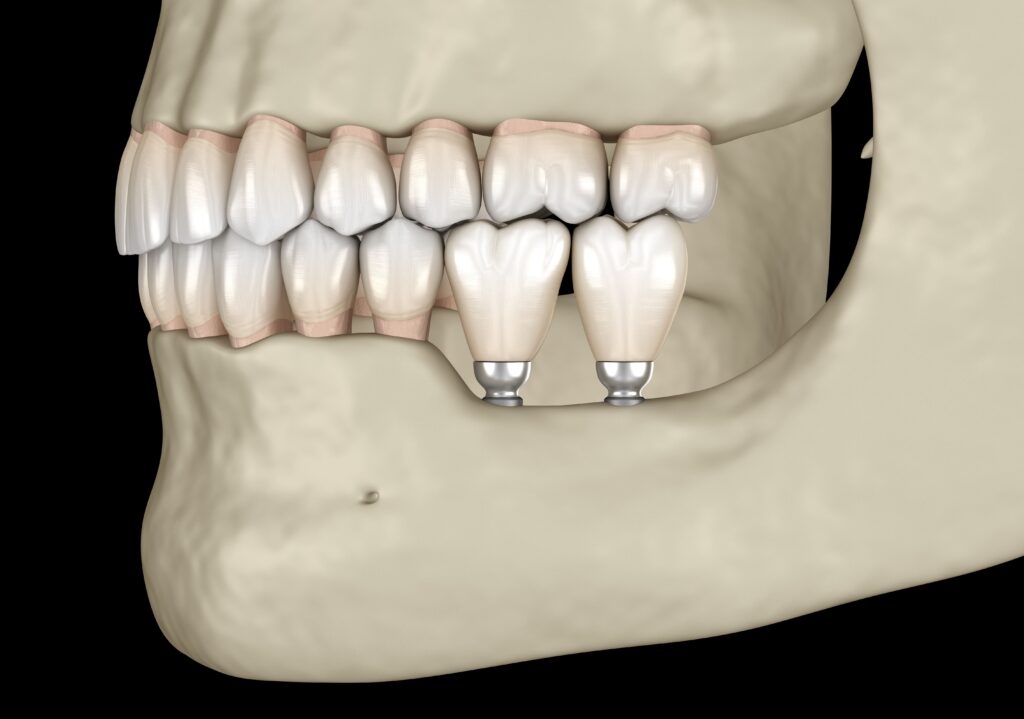Dental implants are artificial tooth roots that are placed into your jawbone to hold a replacement tooth or bridge in place. If you are missing teeth, or have damaged, decayed, or otherwise compromised teeth, dental implants may be the right solution for you. If you are considering dental implants to replace missing, damaged, or decayed teeth, you may be wondering how many implants you will need. The number of dental implants needed depends on three factors: the number of teeth being replaced, the type of restoration being used, and the amount of bone. In this blog post, we will discuss each of these factors and how they affect the number of dental implants needed.
Number of Teeth Being Replaced
The first factor that affects the number of dental implants needed is the number of teeth being replaced. If you are missing one tooth, you will need one implant and one crown. If you are missing multiple teeth, you may need an implant-supported bridge or denture, both of which require more than one dental implant for support.
Type of Restoration Being Used
This brings us to our second factor that affects the number of dental implants needed, which is the type of restoration being used. The three most common types of dental implant-supported restorations are crowns, bridges, and dentures.
Crowns
If you are missing one tooth, you will need one implant and one crown. The crown will be attached to the implant, which will be fused to your jawbone.

Bridges
If you are missing multiple teeth in a row, you may need an implant-supported bridge. An implant-supported bridge is made up of two or more implants that support one or more false teeth (called pontics).
Dentures
If you are missing all of your teeth, you may need an implant-supported denture. An implant-supported denture is an entire set of false teeth that are supported by four or more implants.
Amount of Bone

The final factor that affects the number of dental implants needed is the amount of bone. Generally speaking, the more healthy bone present, the smaller the number of implants needed. If you have less bone, you may need to have more dental implants placed to provide security. In some cases you may also need to have special implants placed known as mini dental implants (MDIs). It is also possible that you may require a bone graft to build up healthy bone mass before having implants placed.
In Conclusion
In this blog post, we have discussed the three factors that affect the number of dental implants needed: the number of teeth being replaced, the type of restoration being used, and the amount of bone. We hope that this information has been helpful in understanding how many dental implants you may need. As always, please consult with your dentist to determine exactly how many implants they thing that you will need for your unique situation. This blog is only meant to serve as a guide to help you predict how many implants are needed, and should not be taken as diagnostic medical advice. Thank you!

Dr. Admar holds dual certificates — a Bachelor of Dental Surgery (BDS) in 2010 from India and a Doctor of Dental Surgery (DDS) in 2014 from Canada. He is now a full time practicing dentist in Kamloops where he provides a variety of services, including emergency dentistry. Dr. Admar spends hundreds of hours in continued dental education to stay up to date in cosmetic and implant dentistry and he has achieved several advanced qualifications.


